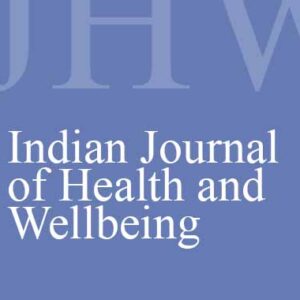Exploring the Relationship between Social Media on Mental Health and Life Satisfaction among Adults
Original price was: ₹ 201.00.₹ 200.00Current price is: ₹ 200.00.
Page: 01-06
Fehmeena Bakht1 and Aman Aggarwal2 (Department of Psychology, Sophia Girls’ College (Autonomous), Ajmer, Rajasthan1 and Saarthi Kendra Guidance to Transformation, Chandigarh2)
Description
Page: 01-06
Fehmeena Bakht1 and Aman Aggarwal2 (Department of Psychology, Sophia Girls’ College (Autonomous), Ajmer, Rajasthan1 and Saarthi Kendra Guidance to Transformation, Chandigarh2)
Social media has become an integral part of our daily life, influencing both positive and negative psychological outcomes. The research explores how increasing social media usage affects mental health and life satisfaction among adults, highlighting its complex role in anxiety, life satisfaction, and well-being in modern society. This study explores the relationship between social media on mental health and life satisfaction among adults. This study involved 50 adults (25 males & 25 females) aged 45-50, selected via convenience sampling. Data was gathered through the google forms using the Bergen Social Media Addiction Scale (BSMAS) – Andreassen et al. (2016); Generalized Anxiety Disorder Scale (GAD-7) – Spitzer et al. (2006); and the Satisfaction with the Life Scale (SWLS) – Diener et al. (1985). Through Pearson Correlation and linear regression analyses, the findings reveal a strong positive correlation (r = 0.704) between social media addiction and anxiety levels, indicating that increased usage correlates with heightened anxiety. However, the expected negative relationship between social media use and life satisfaction was not significant. This study underscores the complexities of social media’s impact on well-being, suggesting a nuanced relationship where social media can influence mental health in various ways. Future research should focus on understanding individual differences and the long-term effects of social media engagement on psychological outcomes.


